“Spikizi is here to represent the voices of today; vibrant, multicultural and detailed”: An interview with app founders Henry Regan and Samuel Lawrence
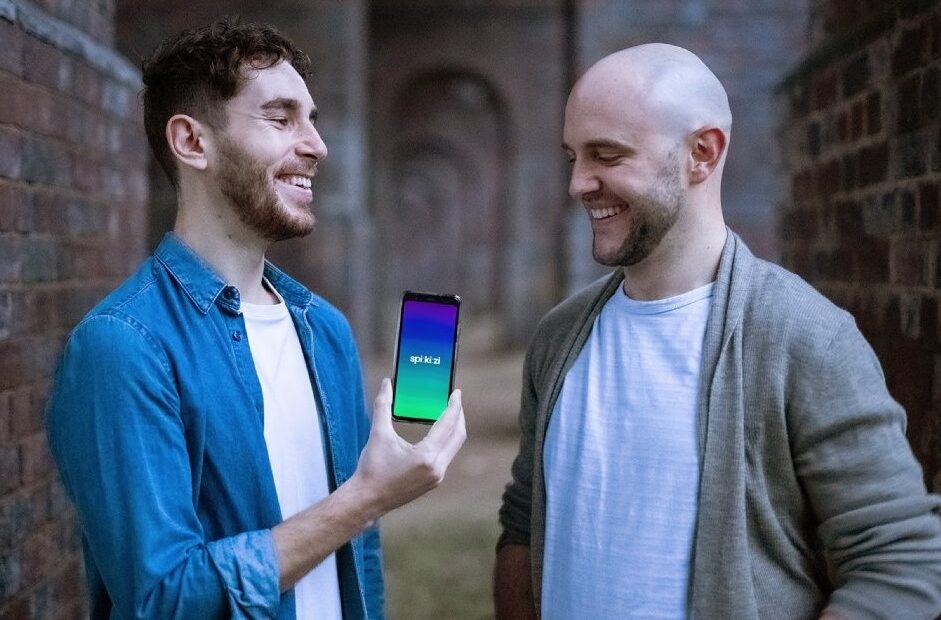
It’s every actor’s worst nightmare: you’ve been given 24 hours to submit an important self-tape, and the role calls for an ultra-specific, rarely-used accent. You scour YouTube and Google for examples of this dialect in action, but can’t find any reliable resource – there’s nothing out there. Do you email them back asking for help and seem unprofessional? Do you wing it and risk losing the role? Do you just give up completely and feel dejected for the rest of the week? …Or do you download an app that provides all the information you could ever want, with the added bonus of welcoming community ready to help you every step of the way?
Founded by actors Henry Regan and Samuel Lawrence, Spikizi is the answer to many a performer’s prayers: a community-led accent and dialect ap that allows users to share and learn each other’s regional voices. At a time where the world is oxymoronically more global and more locked-down than ever, an easy-to-use database like this could be a gamechanger. We sat down with Henry and Samuel to talk about what inspired the software, their aspirations for the future and why community-led projects like theirs are important steps in fighting systemic injustice.
First and foremost, how has 2020 been for you? How have you felt during this rollercoaster of a year?
Henry Regan: It’s been a crazy year to be honest. I spent eight months of it living with my in-laws in Belgium during lockdown. My family just had our second child there and now we’re back home in London. It’s been a little wild: a toddler, a new baby, developing Spikizi and trying to make sure my digital acting “shop window” was up to date, just in case there was a slither of an opportunity. Exhausted doesn’t cover it!
Samuel Lawrence: Rollercoaster is definitely the word for it, both emotionally and physically. Having a bunch of acting work get cancelled towards the start of the year was a real blow. You work so hard for it and then it’s just gone. That’s tough to get your head around, let alone the impact that not seeing family has on you. I’ve been so grateful to have this project to throw myself into so fully. I really struggled to find a way to keep my creative skills sharp and to keep improving myself whilst acting work is almost non-existent. Hopefully this app will help people feel they can upskill and improve themselves, their skills and their CV’s whilst not being able to get out there physically.
HR: As Sam said, it feels good to bring something out that’s going to help hone skills during this time. As an actor who’s not working, for me, it’s about having a purpose and a perspective of the future being brighter. Unfortunately, I’m not one for reading acting books if I’m truly honest, so I hope that this helps everyone who feels like they are in a bit of a professional rut.
What’s the elevator pitch for Spikizi? How would you describe it?
HR: Spikizi is a global community-led accent and dialect app.
SL: Our community is all about mutual support and helping each other out. In order to access the thousands of accents and voice recordings on the app, you first have to add your own. It’s also a platform in which accent coaches from all over the world can share playlists, tips, tricks, videos and tutorials all in one place, making them accessible to everyone at the touch of a button.
HR: We’re building a community of people all looking to learn and upskill. They can do that by “Shouting-out” to other people and asking them to read the text they are learning, potentially getting hundreds of responses in hours. An example of this is if I’m playing Macbeth but I’m from Harpenden I can “Shout-out” to the whole of Glasgow with my text “Is this a dagger” and get voice clips of true native Glaswegian accents, hopefully within the first few minutes of sending it out.
Was there a particular incident or conversation that inspired the app’s creation? When did the idea come to fruition?
SL: I was auditioning for a role in a short film and was several rounds in when the director called me to say they had decided that all the characters in the film would now have an Isle of Skye accent. He told me he was still really keen on me for the role but that he needed me to re-self-tape in two days time with a Skye accent. I smiled and nodded and then furiously searched the internet to help me learn it. I basically found next to nothing but managed to cobble together a very rough version. Long story short, I got cast in the role and then continued to fail at finding good accent material over the following weeks before shooting and unfortunately (like most actors out there) I didn’t have the money for an accent coach. I had the idea whilst stood on a mountain dressed as a Viking in the Isle of Skye and told Henry as soon as I got home.
HR: That’s exactly what happened. I was actually immediately on board, which is unusual. Sam and I have known and worked with each other for a long time and we’re chalk and cheese. We try to challenge each other at every turn but this time I was all in. I have, in the past, spent hours going back and forth on WhatsApp with friends or acquaintances trying to get them to send voice clips of their accents for auditions. I know for a fact I am definitely not the only one who’s been in this situation.
As actors yourselves, how would you describe the current voice resources available to performers? Is it really that lacking? In other words, how necessary do you think new databases like Spikizi are to the industry?
SL: In the past, I’ve always hit a brick wall when trying to find good quality voice clips that are thorough enough to hear every sound and to really get under the skin of the accent. I’ve searched all over youtube, IDEA, the British Archive and other accent apps and found them lacking a lot of accents and the specificity needed. On top of that, most voice recordings out there are middle-class white people in their 50s. That’s just not representative of the acting community.
HR: As Sam said, I’m lucky I’m a young, white, middle-class actor. That’s what all of these resources are catered to, but what about my mate, who’s an actor of colour in her 50s from Portsmouth, and who needs to learn a Dublin accent – where’s her resource? I can find plenty of examples for me but what about her? The acting industry is championing diversity, and so they should be, so why aren’t there the resources to cater for this demand? It’s also not just about that. It’s about having something that’s living and breathing that’s being led by the people that use it. “Is it really that lacking?” – my answer, along with our fantastic advisory board, is a resounding yes.
SL: Spikizi is here to represent the voices of today; vibrant, multicultural and detailed. We celebrate every accent and are truly making it accessible to everyone.
The app is community-centric, with users being required to offer their own voices to the database. What inspired you to take this approach, as opposed to a top-heavy one? Why the impetus on community?
SL: I’ve always felt that performers are an incredibly supportive group of people and I’ve always been more inspired to do things if I know that it will help others out, on top of just bettering myself. Ultimately, by the time we have 1500 voices on the app, we’ll have the biggest database of recordings for accent use in the world. We are pretty much there already, in terms of the people signed up to use the app in December. But we’re not satisfied with that. It truly needs to serve everyone in the acting community and that can only happen if we have people from all over the world of all ages, genders, ethnicities, religions and types of schooling. It all feeds into how each person sounds and tells a unique story.
HR: It will clearly tell us where we have our gaps. It might be we get loads of people from Leeds but none from Hull, which is why we’ve made it our mission to get the communities involved, get people to put non-actors on there – their mums, dads, nans – to build up a rich database pool for people to choose from. If we are struggling to add voices in Hull we’ll go there, ask schools, community centres, care homes, the local chippy, if we can visit and see if the people will donate their accents. If you can help preserve accents within a community then it makes sense to get them on Spikizi for the world to hear.
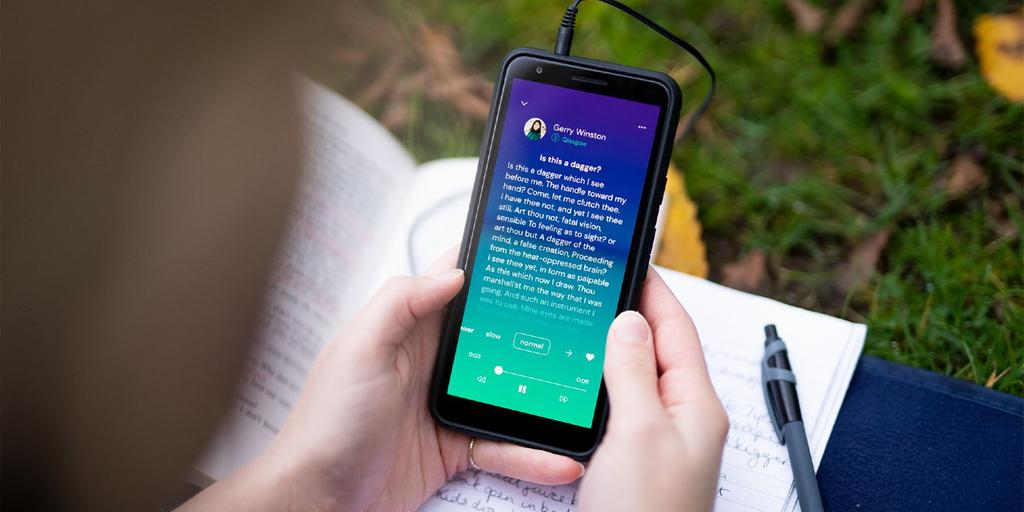
Obviously, with such a user-powered app, there’s a fear that some bad apples may take advantage and taint the database by uploading voice recordings for accents they’re not adept at (eg. a person may claim they’re from Liverpool when they’re not). Do you have any plans to ensure the recordings offered by users are reliable?
HR: This is one of the great attributes of being community-led. Anyone can report a “bad apple” or voice clip directly to us, so we also have our “community watch” that will make sure their app is as good as it can be. We will also be internally policing the app, making sure there are no irregularities.
SL: We also have a verification tick similar to Twitter in which you can request to have your voice and settings looked over by our expert voice panel and if they agree with your choices you will become verified. These verified voices will appear higher on searches so that you know their voice matches your need. The more likes a voice profile gets, the higher it will also appear on searches, meaning that the more people that find an accent and voice useful and authentic the more that voice will be found.
Voice coaches will also create playlists on different accents, choosing which profiles and sound clips best represent those accents. They will then offer words of wisdom on how to master those sounds. So if you search for playlists by an established coach you’ll know the information is approved and correct.
With features like voice playlists and regional databases, Spikizi is certainly technically impressive: how did you go about building the app itself?
SL: In our muggle jobs we work with creative and digital agencies. Once we had the idea and plan for the app we knew that we didn’t have the technical expertise to actually build it, so we managed to negotiate a service swap to pay for some of the app and the rest of it came out of our pockets. These agencies are incredible and have built apps for people like Adidas, Disney and Lego, so we knew we were in good hands from the technical development side of things.
HR: We work with brands all the time; it’s our job to know which direction they are moving, but we had never launched one before so that for us was a whole new learning experience. Having the agencies on board meant we were guided throughout which is why we decided to put together a team of voice experts as well.
Spikizi has an all-star advisory board, including big names like Rick Lipton and Samara Bay (some of Hollywood’s most in-demand voice coaches), Tess Dignan (Head of Voice at Shakespeare’s Globe) and Elspeth Morrison (BBC and Channel 4 voice expert) – how did you go about assembling such an impressive board? What were their reactions to the idea?
HR: As actors, we both saw a need for the app but we were also aware that we were in no way voice experts.
SL: We knew we needed our ideas and plans to be validated and tweaked by the best minds in the business to even stand a chance of being useful. So we just reached out to them all via email or LinkedIn and they were all so generous to hear us out. Once we pitched them we were overwhelmed with how positive their reactions were, citing a real need for it in the industry. Once we were told that it would change the accent landscape for actors and coaches across the world, we really knew we needed to push it hard.
HR: They have been invaluable in building this app. It’s not something that we’ve spent a couple of weeks on; it’s been a year in the making, from market research and conceptualIsing to designing and developing, which all takes an incredible amount of time. Getting it right is the hardest part and having our advisory board debating – and on a couple of occasions completely disagreeing with us – has only made Spikizi stronger.
Spikizi has already outlined its plans for growth – like taking a road trip to collect under-represented accents when the database hits 3000 users – but do you have anything further planned for additional milestones? Where do you think Spikizi could be in a year’s time, for example?
HR: We would like our website to become a place where people can access their accent and dialect news. We’re also going to start making our own content with our network of experts which is something we’re both really excited about. Therefore later in 2021, we’ll be creating a YouTube channel so people can access all that content.
SL: We’re really hoping to hear feedback from our userbase over the next year in order to build exactly what they want and need. We’re going to be constantly developing and tweaking to make it a truly great resource. We also have plans to build a section of the app that allows you to book sessions with voice coaches. Spikizi will be great as a self-learning tool but for those who then want additional help, we want to make it as simple as possible to book a slot with an expert.
The app officially launches on 1st January 2021 – after such a damaging year for the industry, hopefully 2021 and Spikizi will usher in a more favourable time for actors. Do have any advice for creatives who may be struggling at the moment?
SL: At the start of the lockdown there were a lot of memes going around saying that it’s okay to be unproductive. I wholeheartedly agree, but the part I struggled with was knowing how I could use the time when I did want to be productive. It’s all about balance. I couldn’t cope with one and not the other. The way I’ve found that works for me is about sectioning up my time. Working when I’ve dedicated time to work on myself and my skills means that I can really enjoy my rest without feeling guilty.
HR: Take this time to reflect on what has been, what is important right now and what you want in the future. This is a chance to strengthen your skillset or take a completely new path. Nearly everyone is struggling with their mental health at the moment; that’s a huge topic and one that’s still being overlooked by the powers that be. First and foremost, it’s important to take care of your loved ones and yourself at this time, check in with your nearest and dearest. Once you’ve done that, build up your strength, physically and mentally, because when things open up, there’s going to be a lot of hungry actors out there looking for jobs. Upskilling is your opportunity to capitalise on this time whilst we’re not working, to make sure you succeed in the future.
Samuel Nicholls
Free advanced previews of the Spikisi app begin on 1st December 2020. Spikizi will be fully launched for mobile download on 1st January 2021 on iOS and Google Play. Subscriptions cost £19.99 per annum or £9.99 for three months. All preview users will be entitled to a reduced rate of £14.99 for their first year. For further information about Spikizi visit their website here or follow them on Twitter, Instagram and Facebook.


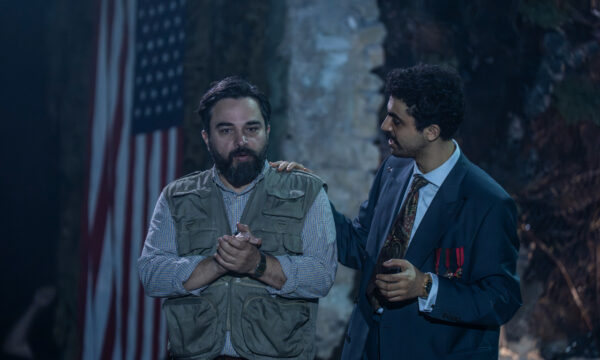

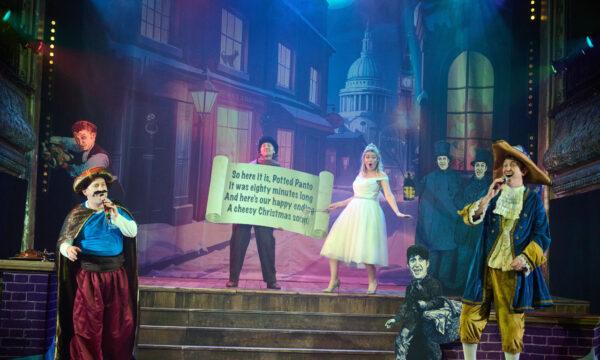




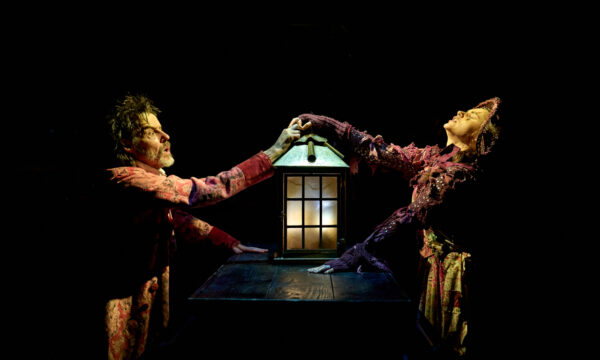
















Facebook
Twitter
Instagram
YouTube
RSS